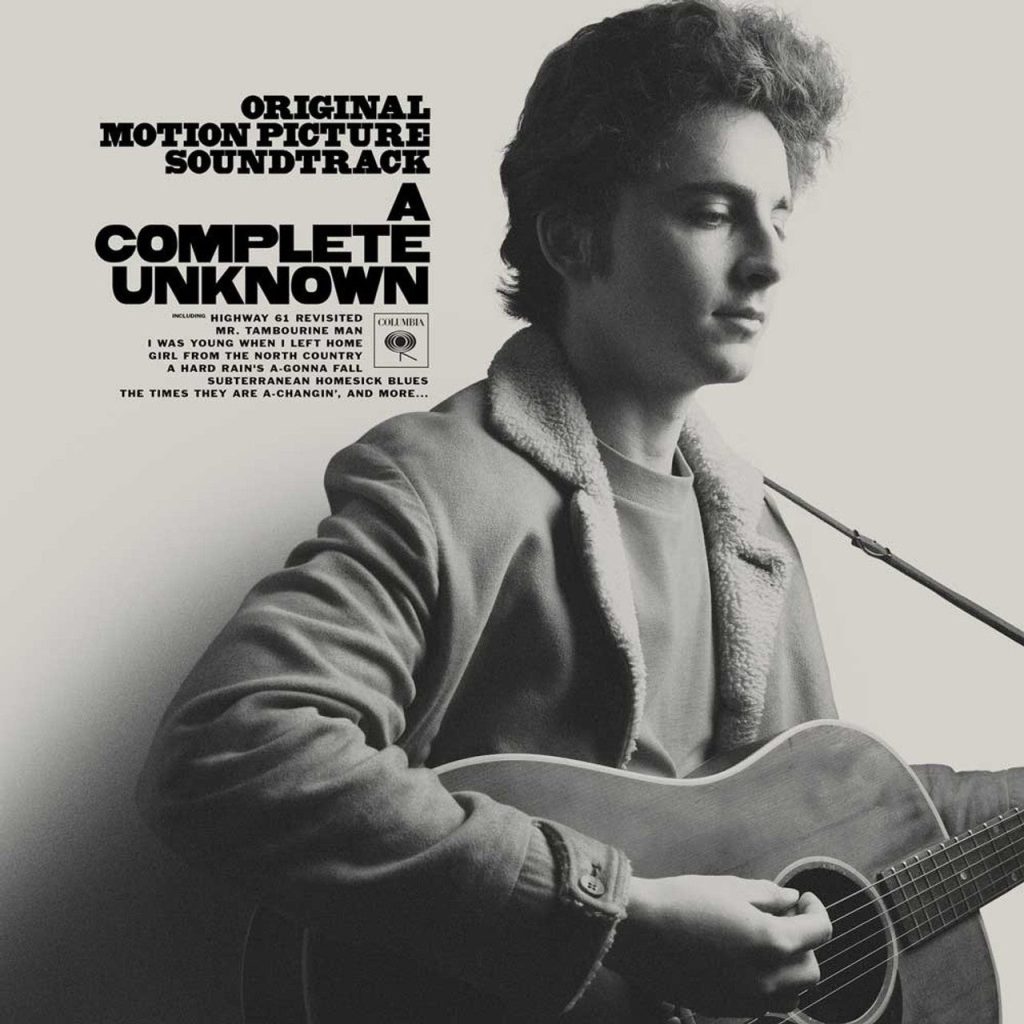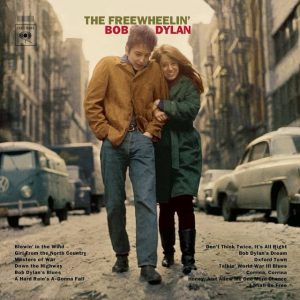And this is as it should be. Because of the horrible wacko karma that Jolie created when she hatched and orchestrated the virulent anti-Brad Pitt discord within her own family. She did this, and now she owns it.
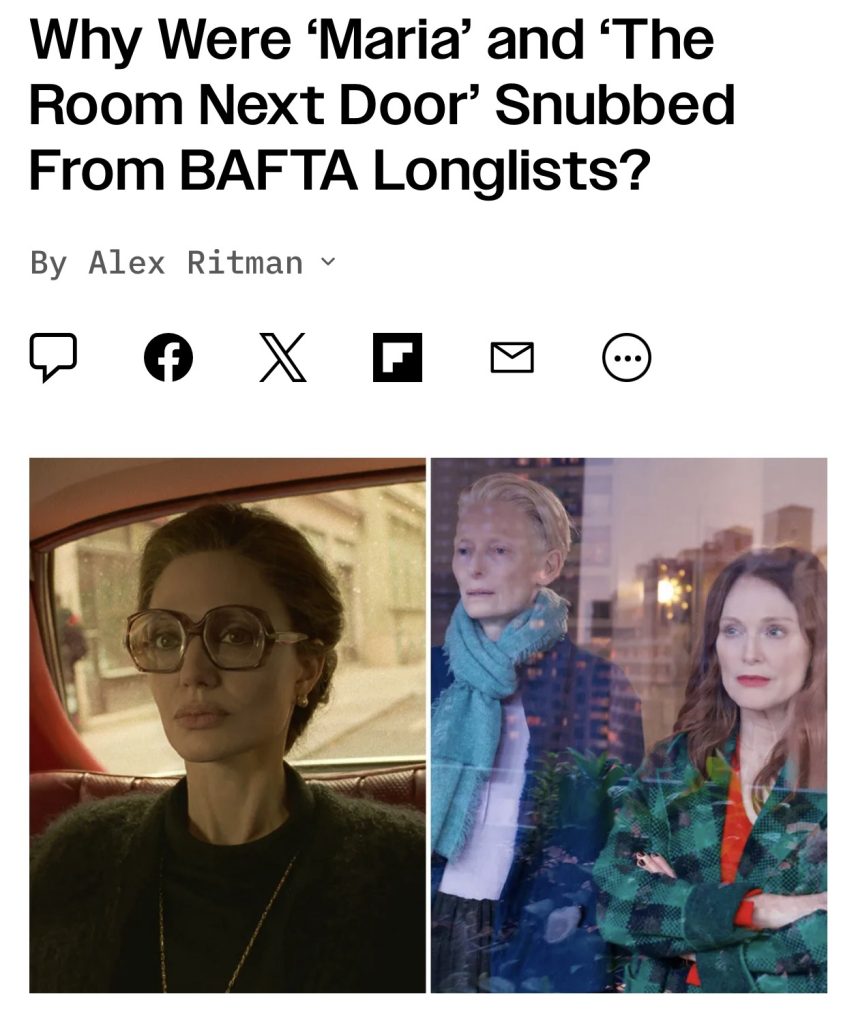
And this is as it should be. Because of the horrible wacko karma that Jolie created when she hatched and orchestrated the virulent anti-Brad Pitt discord within her own family. She did this, and now she owns it.

The bottom line is that henceforth the idea of hiring or otherwise working with Blake “I Love Trouble” Lively and Justin “We Will Bury You” Baldoni on a movie or limited series…the mere thought of this is generating heebie–jeebie shockwaves among producers and studio execs worldwide.
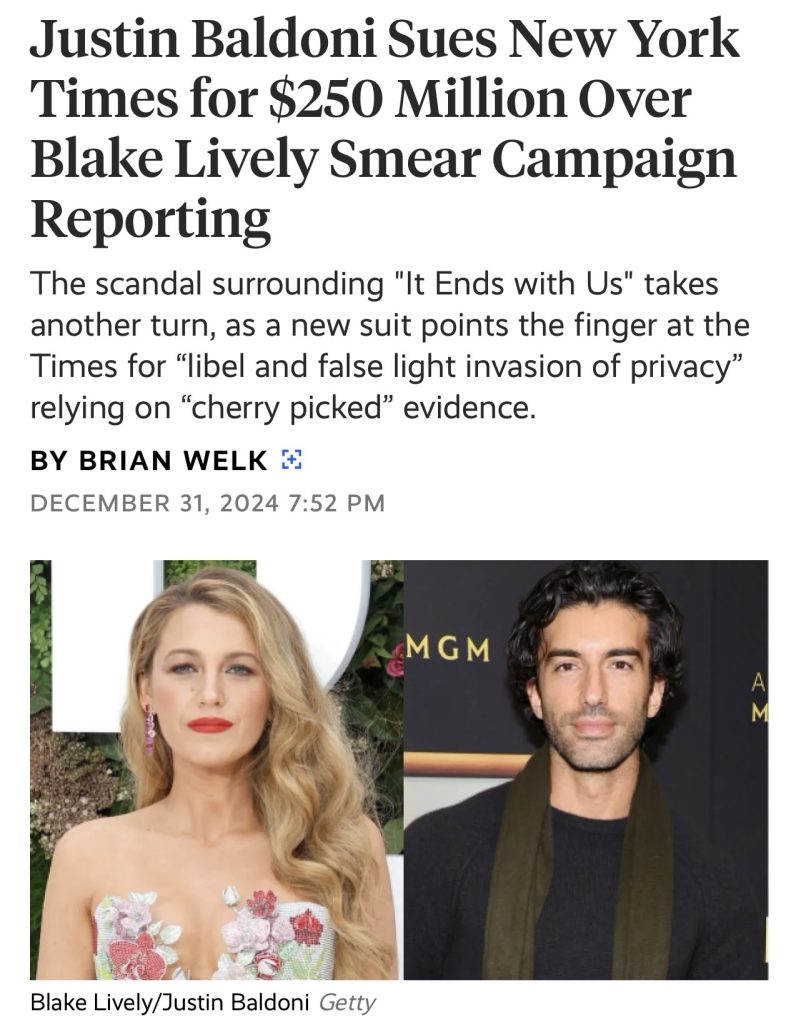
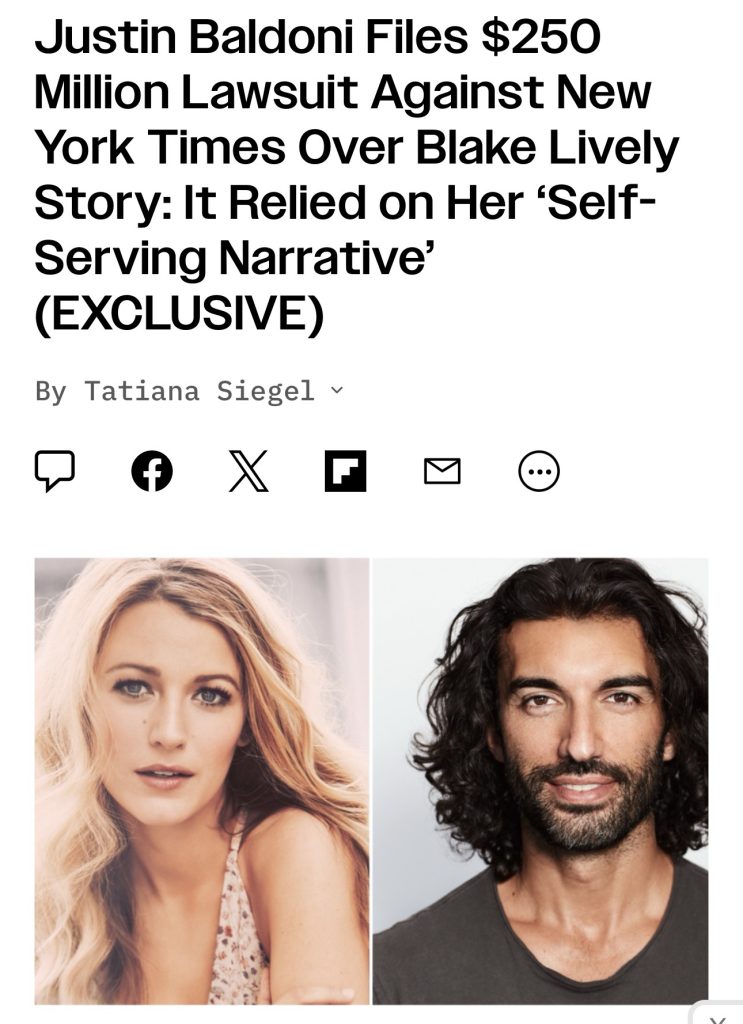
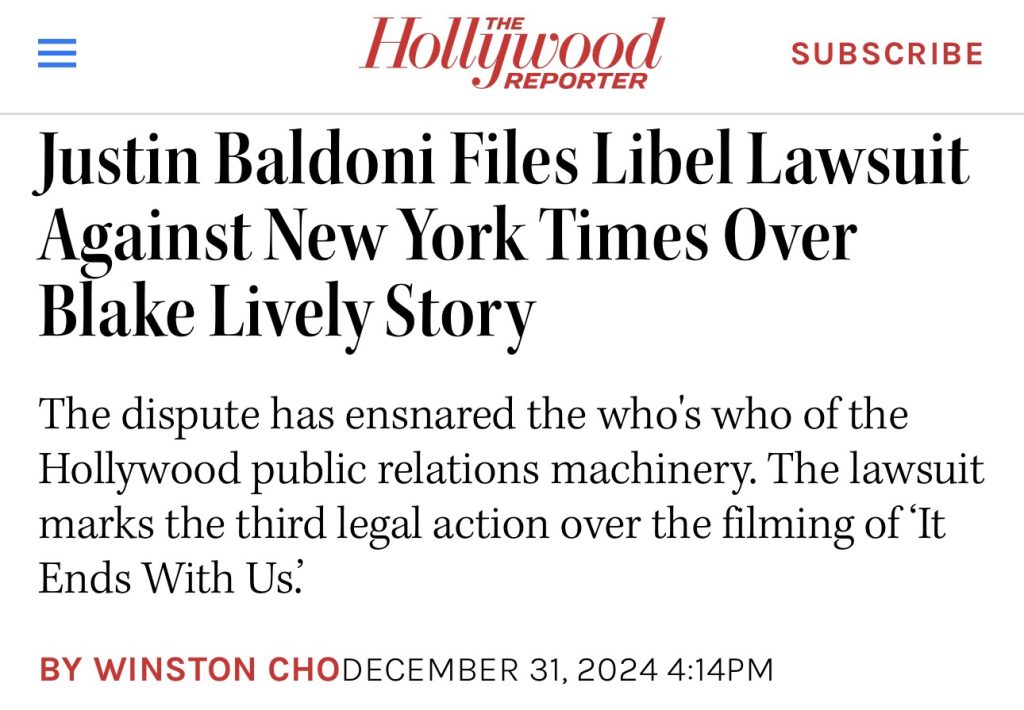
Bill McCuddy recently had the absolute gall to celebrate Skywalkers: A Love Story as his #1 film of the year.
I responded as follows:
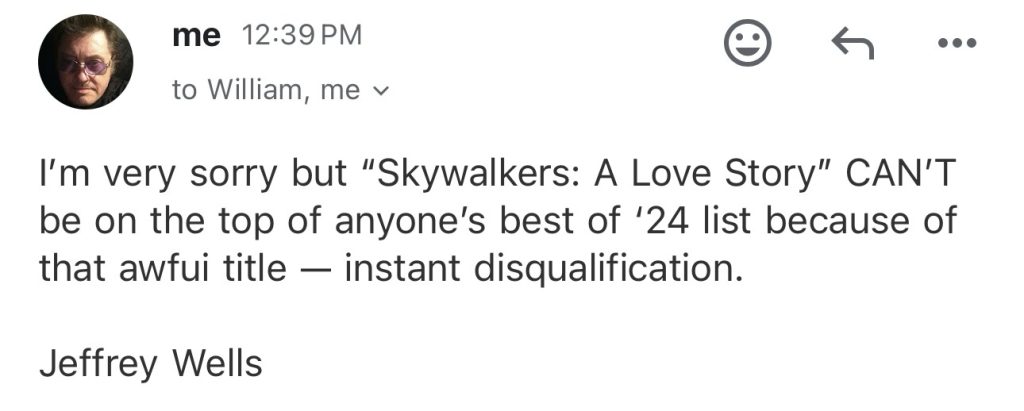
Not to mention that below-the-title slogan — “What will they risk to touch the sky?” Words fail.

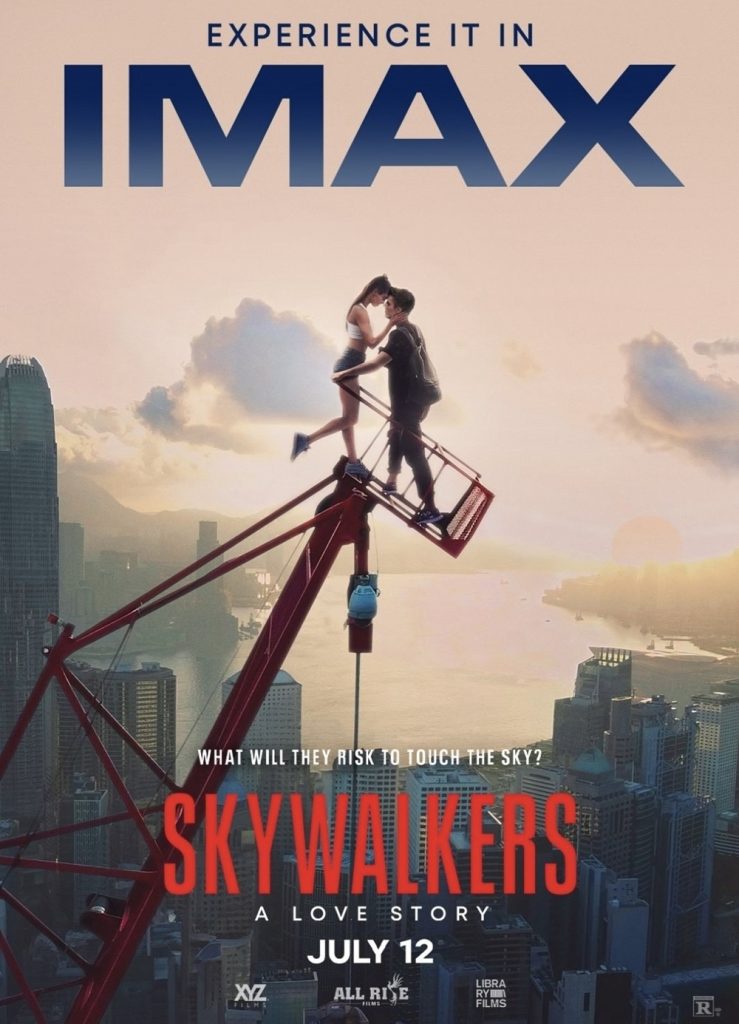
I should be more open-minded, I realize, in part due to Variety‘s Owen Gleiberman having put Skywalkers on his ten-best list. But that title is so repulsive that I really don’t want to see this film, ever. My life will not be even slightly diminished by my avoiding it.
Skywalkers opened last summer and nobody jumped up and down. Not in my orbit, they didn’t. Flatline flatline flatline. And then all of a sudden McCuddy and Gleiberman perform last-minute cartwheels.
There were six media-eyeball events that hurt poor President Carter during his administration.
The first five inflicted different kinds of wounds. Most damaging was the failed, politically crushing attempt to rescue Iranian hostages. Then came Ted Kennedy’s 1980 primary challenge. Three, that silly story about the hissing rabbit allegedly attacking Carter’s fishing boat. Four, that “lust in my heart” quote from that Playboy interview. Five, being half–ignored by TV sports reporters when he visited the Pittsburgh Pirates clubhouse following their 1979 World Series triumph.
But the sixth was the most damaging of all — collapsing from heat exhaustion during a six-mile marathon on 9.15.79. If you’re going to compete in a marathon, do so like a serious athlete or not at all. And never, ever exhibit physical weakness.
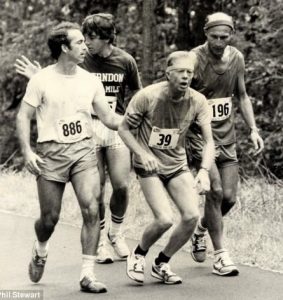
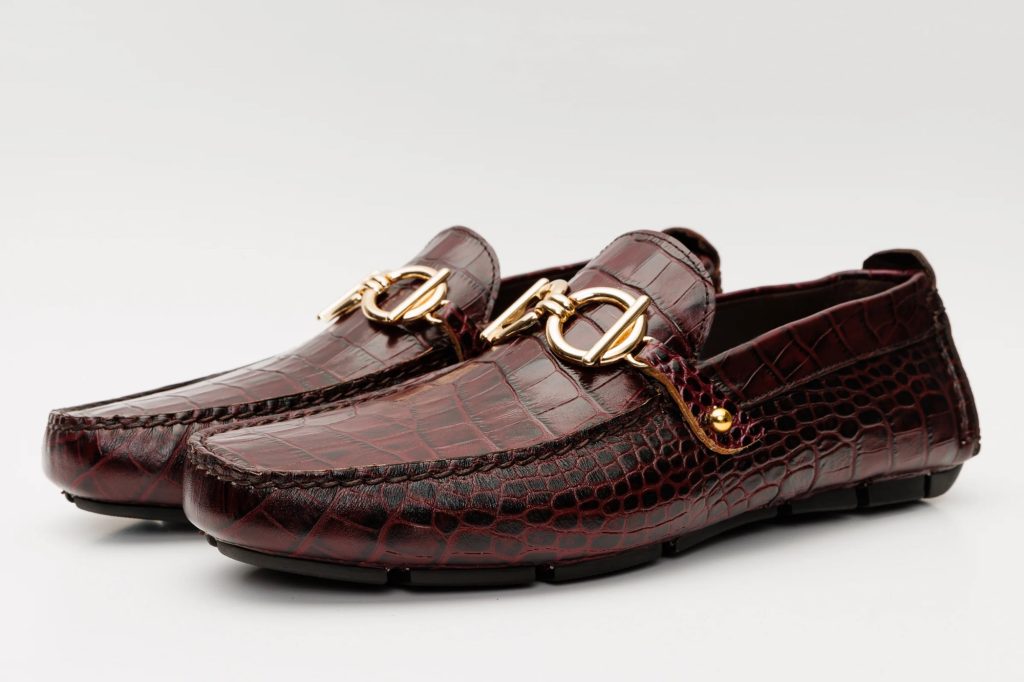
…or more exquisitely designed or 20th Century elegant than these Italian-made honeys.
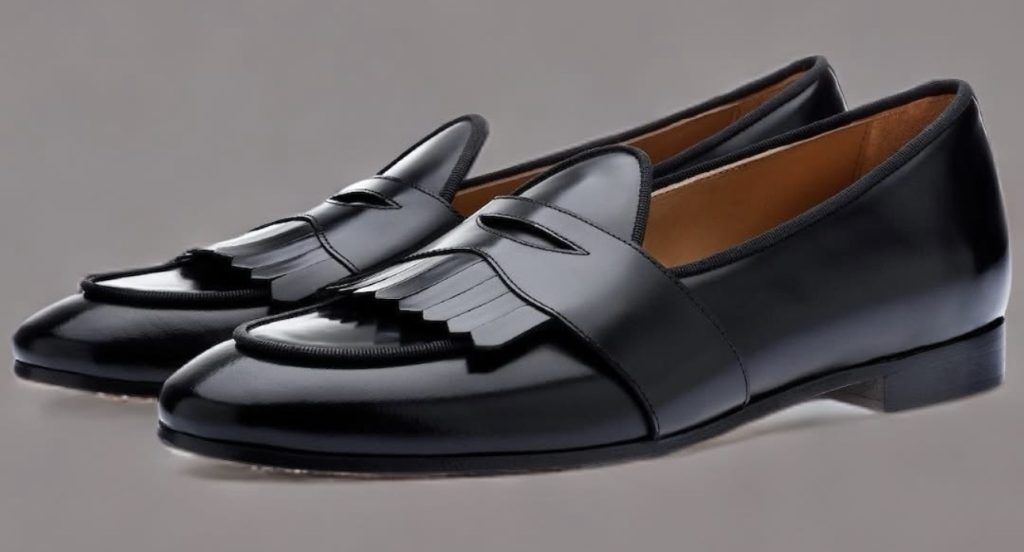
One of the wellsprings or chief motivators of Nancy Meyers’ romantic fantasy films (It’s Complicated, Something’s Got to Give, The Holiday) was…I feel that candor is allowable now…the apparent fact that her 20-year marriage to and creative partnership with the late Charles Shyer ended bruisingly, due to infidelity.
Imagine if Meyers were to write and direct an Ingmar Bergman-type film about the collapse of her marriage under this duress. I don’t think she has it in her to make such a film, mind, but if she did it would really be something.
I related to Shyer as a dude acquaintance in various ways, and it wasn’t just the moldy strawberries.
One of them, I’m now starting to believe, was a vague sense of low self-esteem in the early chapters —- a bad teenage mood pocket that adversely affected our psyches. Suffering the derision of classmates for being odd or different — that shit can really stay with you. Not to mention the alcoholic dad factor. I don’t know if Charles’ dad was a bit of a boozer, but mine sure was, and we all know what that leads to in terms of self-esteem among kids who had to live through that emotional shitstorm.
I just explained to a friend this morning why I was so sexually…uhm, energetic in my ‘70s to mid ‘80s heyday, and then again in the ‘90s and aughts and even into the early to mid 20teens.
I was kind of a hound because I had no sexual self-esteem as a teenager — because I was regarded as an oddball dweeb who looked funny and behaved oddly and lived internally through movie worship, and I certainly wasn’t regarded as attractive as far as many teenaged women were concerned.
That downish, depressive self-image was so awful and internally ravaging that it felt truly glorious to renounce that image when I started to get lucky in the early ‘70s, and especially when my shameless slut-whore Studio 54 Lemmon 714 quaaludes period kicked in during the Gerald R. Ford and Jimmy Carter administrations.
Roughly 175 rhapsodic transcendent celestial starbursts between ‘75 and 2015 or thereabouts.
It really wasn’t about being macho or cynical or being some kind of reckless purveyor of gymnastic sporting events, but about a truly wondrous and nourishing renunciation of my grim teenage life. Every time I got lucky I felt and meant it sincerely. I was never a cad. My vulnerable heart was always on my sleeve.
I’m presuming that Charles was a nerd like me in his early youth, and maybe felt some of the same things during his teenaged torture era. I don’t know very many of his biographical particulars, but he lived a somewhat similar journey, I’m thinking.
I might be completely or mostly wrong, but my gut says otherwise.
Among the many, many things I love about Quentin Tarantino’s novelization of Once Upon A Time in Hollywood, which is much, much better than the film, his riff about the late Sharon Tate’s musical preferences always makes me chuckle.
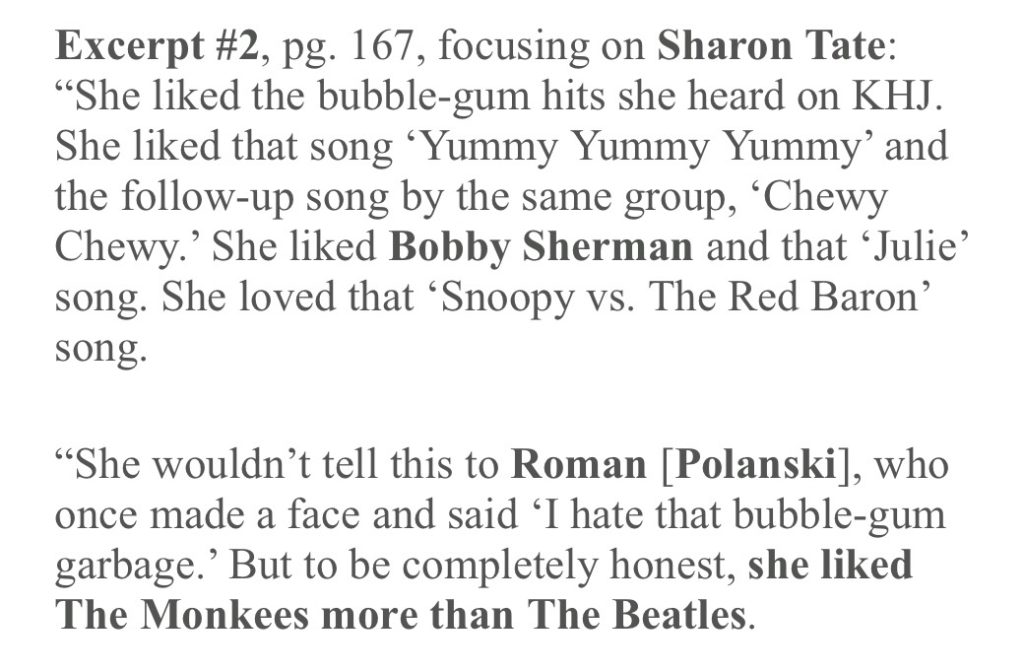
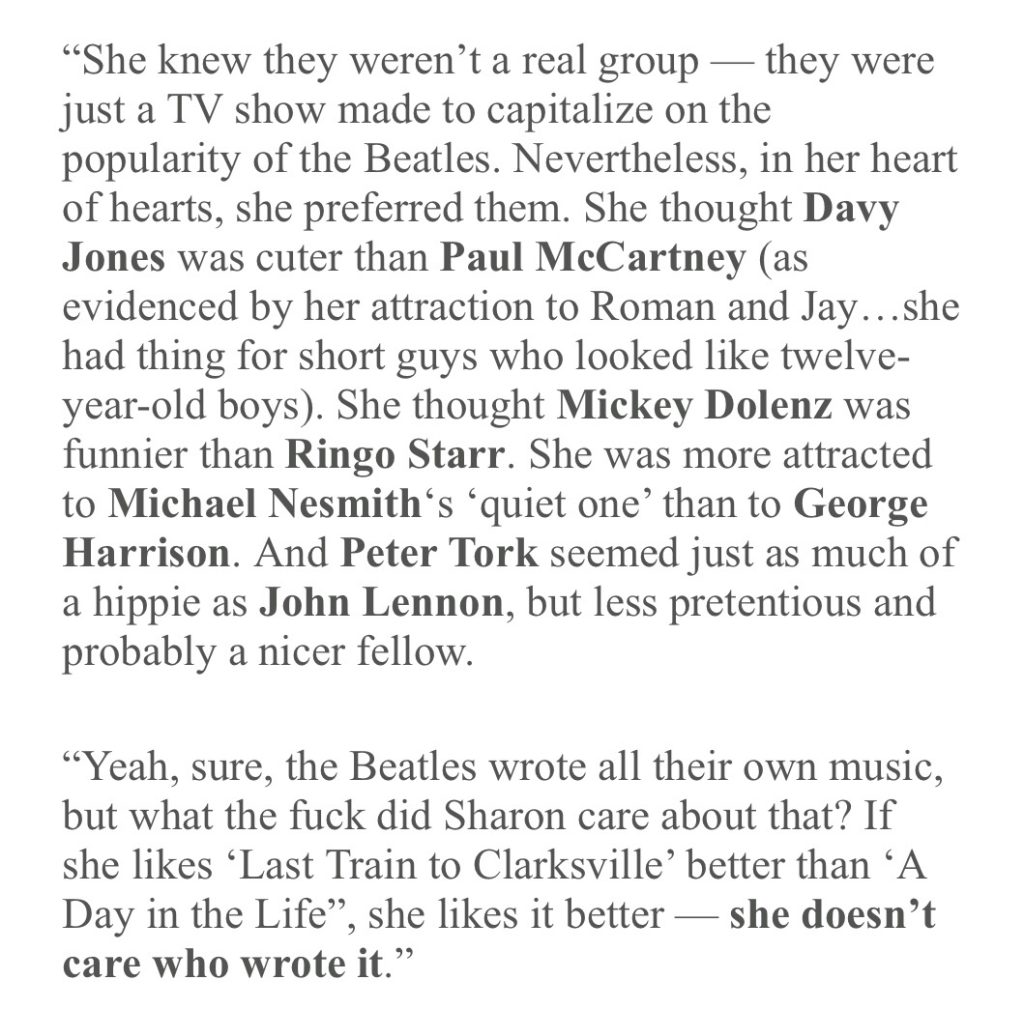
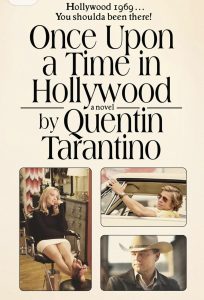
An overlong, way-too-costly leviathan of a film that (a) nobody wants to re-watch, (b) will go down in history as the only Martin Scorsese movie that represented a total capitulation to woke identity politics (and in so doing jettisoned the legendary vitality of the Scorsese brand) and (c) provided a springboard for an unfortunate identity campaign for Best Actress that we all had to tolerate for months on end, despite the effort being doomed to fail on Oscar night because the performance was obviously supporting. What a drag all around.
Only now can the tragic embarrassment of Killers of the Flower Moon be fully comprehended.
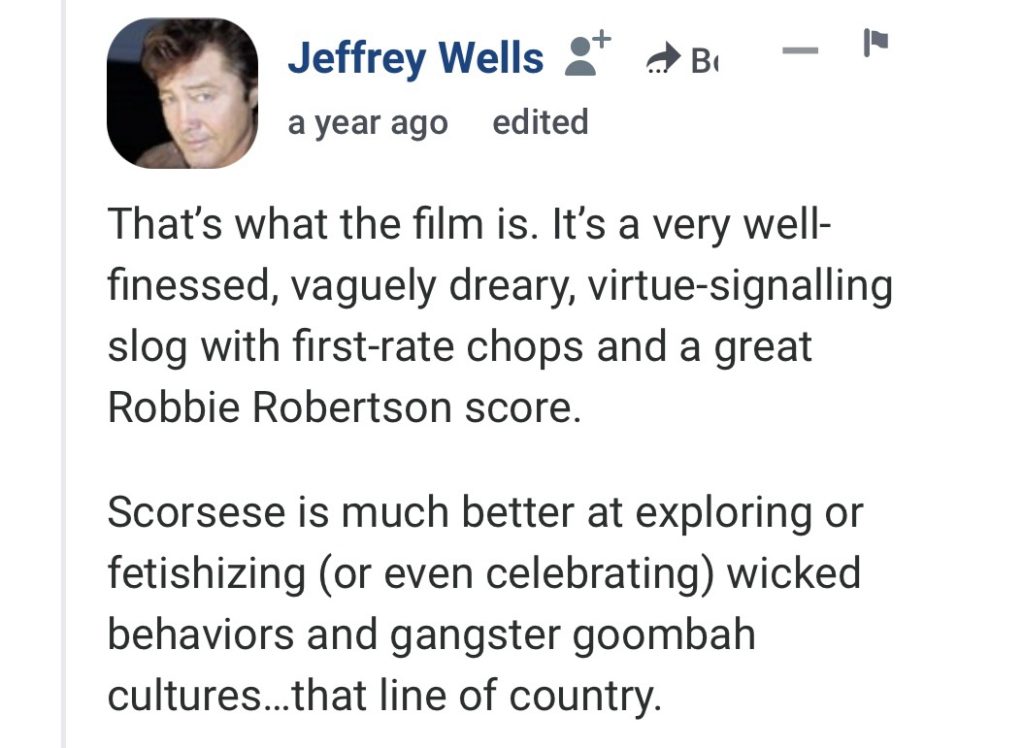
If only Marty and Leonardo DiCaprio hadn’t pussied out and had stayed with Eric Roth’s original take on David Grann’s 2017 novel…alas.


One-third of the way through A Complete Unknown there’s a brief shot of Timothee Chalamet flipping through vinyl albums inside Bleecker Bob’s, and we see glimpses of Dylan’s first album with Chalamet’s photo subbing for the Real McCoy.
We also glimpse one of Joan Baez’s early albums with Monica Barbaro on the cover.
Chalamet and Elle Fanning posed last year for a substitute version of the famous cover shot for The Freewheelin’ Bob Dylan. I’d like to see cover replica keepsakes of all the early to mid ‘60s Dylan albums, right on through to Highway 61 Revisited and Blonde on Blonde.
.